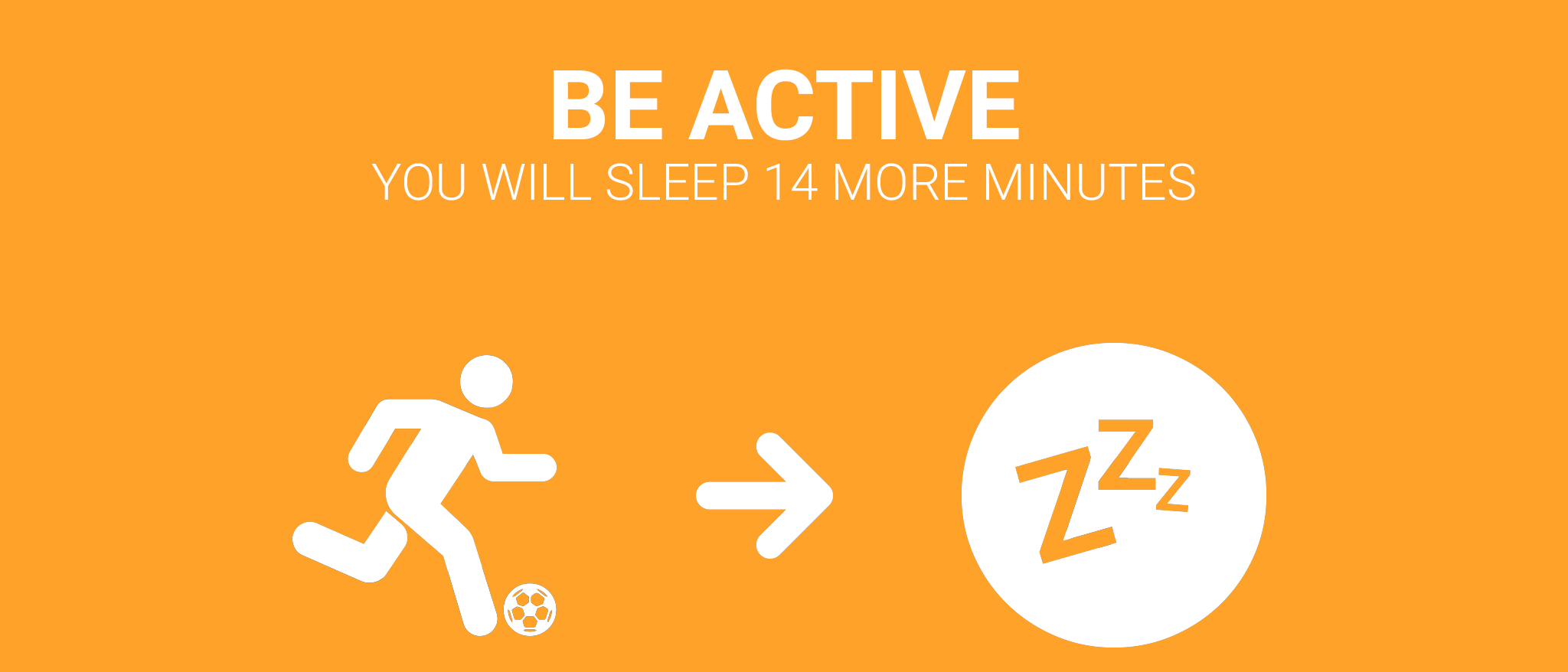
Whether it’s changing your schedule to walk to and from work, adding a lunchtime walk or squash game, or joining a pick up basketball league, the more active you are, the better you sleep.
The first dimension of health we will be discussing this week is activity, and its relationship with sleep. A few months ago we conducted a study to understand the role that various activity levels play on sleep. Unsurprisingly, we found that people who were active throughout the day were more likely to sleep better at night. Whether it’s changing your schedule to walk to and from work, adding a lunchtime walk or squash game, or joining a pick up basketball league, the more active you are, the better you sleep.It is important to note that the arrow moves both ways. Just as not exercising can negatively influence sleep quality, not getting enough sleep can negatively influence activity levels. When you are tired it is harder to motivate your body to go to the gym and get the exercise you know you need.
In case you missed our article about the impact of activity on sleep, check out this summary below.
We observed four main benefits:
Increased sleep duration
People who participated in vigorous physical activity during the day experienced 14 minutes more sleep than those who did not, (6h48 v 7h02).
Increased deep sleep duration
There was an average increase of 19 minutes in deep sleep (3h20 vs 3h39) of people who were active vs those who were not.
Earlier bedtimes
People who were active went to bed 36 minutes earlier than those who were not, (11:40 pm vs. 12:16 am)
Less midnight wake ups
The average number of times people woke up in the middle of the night was 13% lower for people who were physically active compared to those who were not, (1.5 vs 1.3 times per night).
These four benefits lead to a better overall sleep experience and illustrate the vast advantages of activity and health tracking. If you, like many others around you are experiencing difficulty sleeping, it is hard to pinpoint exactly why. With the ability to track activity levels and sleep and view history over time, it is much easier to understand how your actions throughout the day influence the number of sheep you have to count at night.
These four benefits lead to a better overall sleep experience and illustrate the vast advantages of activity and health tracking. If you, like many others around you are experiencing difficulty sleeping, it is hard to pinpoint exactly why. With the ability to track activity levels and sleep and view your history over time, it is much easier to understand how your actions throughout the day influence the number of sheep you have to count at night.


